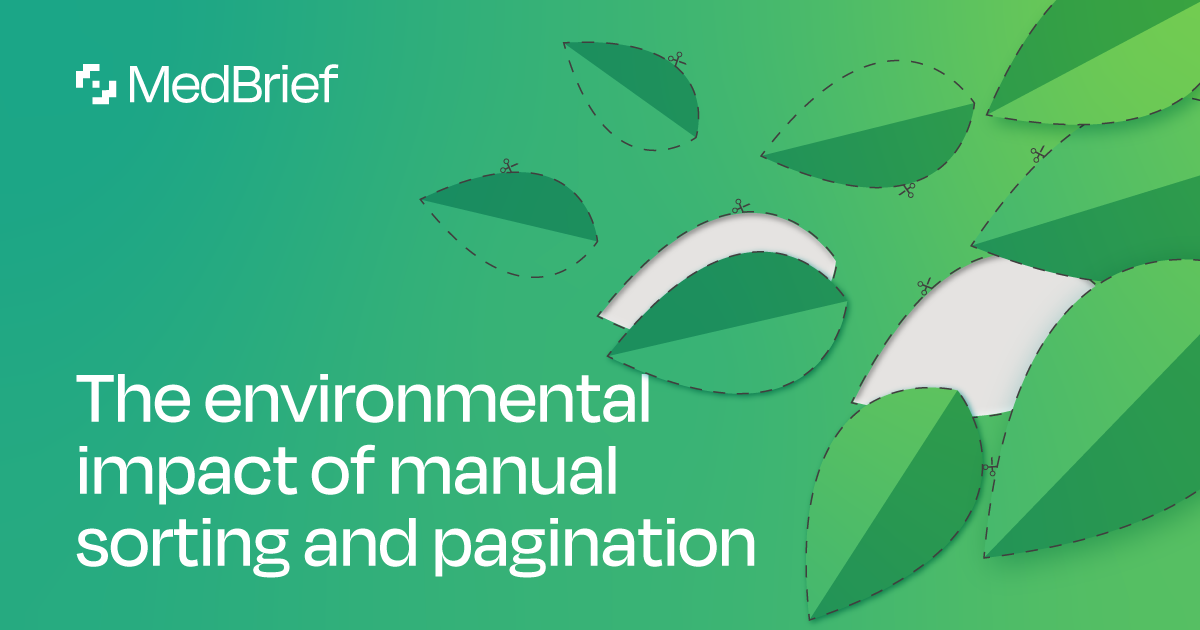Traditionally law firms opted for providers that used manual processes for sorting and pagination. However manual methods are not only time intensive but extremely harmful to the environment. We’ll be breaking down which parts of the process are damaging and explore sustainable alternatives.
Excessive paper consumption
A typical medico-legal case has thousands of records that need printing out. This high volume contributes to issues like deforestation and the depletion of natural resources.
When we paginate, whether by hand or through a printer, we’re using ink and toner. These materials can harm the environment during production and disposal, adding to the overall impact of sorting and pagination.
Energy-intensive processes
Sorting might seem simple, but it can use a lot of energy, especially when we’re dealing with a lot of medical records. This energy use adds to the carbon footprint, creating more environmental concerns.
Transportation
Travel takes a toll
The logistics of moving around piles of records demand a lot of resources. From fuel consumption to vehicle wear and tear, this process amplifies the environmental impact.
The broader environmental discussion
It’s important to understand how these processes can have such a big impact on the environment, before we advocate for change. This broader understanding becomes a driving force for choosing alternatives that are better for our planet.
Advocating for sustainable practices
We explore the environmental impact of manual sorting and pagination, with a focus on extensive printing and transportation, the conversation naturally turns to advocating for sustainability. Promoting awareness about the environmental consequences becomes a catalyst for steering towards eco-friendly alternatives within the medico-legal field.
In our journey through the environmental impact of manual sorting and pagination, with a specific spotlight on extensive printing and transportation, it becomes clear that these traditional practices have a far-reaching impact. The sheer volume of records, combined with logistical demands, magnifies the ecological footprint. This blog is a call to action, urging a re-evaluation of practices, emphasizing the need for sustainable alternatives, and highlighting the profound impact on the environment within the medico-legal field. Let’s rethink our approach for a greener, more environmentally conscious future.


